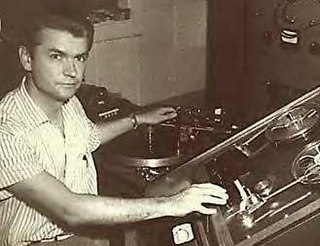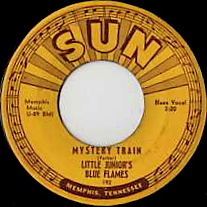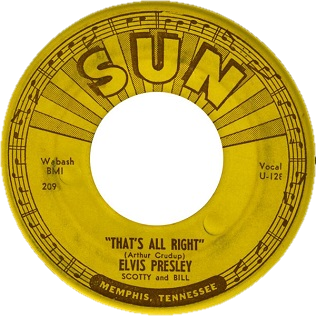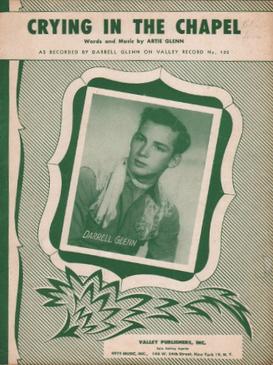Related Research Articles

Stiff Records is a British independent record label formed in London, England, by Dave Robinson and Jake Riviera. Originally active from 1976 to 1986, the label was reactivated in 2007.

Samuel Cornelius Phillips was an American disc jockey, songwriter and record producer. He was the founder of Sun Records and Sun Studio in Memphis, Tennessee, where he produced recordings by Elvis Presley, Roy Orbison, Jerry Lee Lewis, Carl Perkins, Johnny Cash, and Howlin' Wolf. Phillips played a major role in the development of rock and roll during the 1950s, launching the career of Presley. In 1969, he sold Sun to Shelby Singleton.

Sun Records is an American independent record label founded by producer Sam Phillips in Memphis, Tennessee on February 1, 1952. Sun was the first label to record Elvis Presley, Charlie Rich, Roy Orbison, Jerry Lee Lewis, Carl Perkins, and Johnny Cash. Prior to that, Sun had concentrated mainly on African-American musicians because Phillips loved rhythm and blues and wanted to bring it to a white audience.

Rufus C. Thomas, Jr. was an American rhythm-and-blues, funk, soul and blues singer, songwriter, dancer, DJ and comic entertainer from Memphis, Tennessee. He recorded for several labels, including Chess Records and Sun Records in the 1950s, before becoming established in the 1960s and 1970s at Stax Records. His dance records, including "Walking the Dog" (1963), "Do the Funky Chicken" (1969), and "(Do the) Push and Pull" (1970), were some of his most successful songs. According to the Mississippi Blues Commission, "Rufus Thomas embodied the spirit of Memphis music perhaps more than any other artist, and from the early 1940s until his death . . . occupied many important roles in the local scene."

"Hound Dog" is a twelve-bar blues song written by Jerry Leiber and Mike Stoller. Recorded originally by Big Mama Thornton on August 13, 1952, in Los Angeles and released by Peacock Records in late February 1953, "Hound Dog" was Thornton's only hit record, selling over 500,000 copies, spending 14 weeks in the R&B charts, including seven weeks at number one. Thornton's recording of "Hound Dog" is listed as one of the Rock and Roll Hall of Fame's "500 Songs That Shaped Rock and Roll", ranked at 318 in the 2021 iteration of Rolling Stone's 500 Greatest Songs of All Time and was inducted into the Grammy Hall of Fame in February 2013.

Sun Studio is a recording studio opened by rock-and-roll pioneer Sam Phillips at 706 Union Avenue in Memphis, Tennessee, on January 3, 1950. It was originally called Memphis Recording Service, sharing the same building with the Sun Records label business. The Sun label that was housed within the studio played a large role in Elvis Presley's early career.

"Mystery Train" is a song written and recorded by American blues musician Junior Parker in 1953. Originally performed in the style of a Memphis blues or rhythm and blues tune, it was inspired by earlier songs and later became a popular rockabilly song, as first covered by Elvis Presley, then numerous others.

"That's All Right" is a song written and originally performed by the American blues singer Arthur Crudup and recorded in 1946. It was rereleased in early March 1949 by RCA Victor under the title "That's All Right, Mama", which was issued as RCA's first rhythm and blues record on its new 45 rpm single format.
"I Really Don't Want to Know" is a popular song written by Don Robertson (music) Howard Barnes (lyrics). The song was published in 1953.

"Crying in the Chapel" is a song written by Artie Glenn and recorded by his son Darrell Glenn. The song was released in 1953 and reached number six on the Billboard chart.
"Money Honey" is a song written by Jesse Stone, which was released in September 1953 as the first single by Clyde McPhatter backed for the first time by the newly formed Drifters. McPhatter's voice, but not his name, had become well known when he was the lead singer for Billy Ward and the Dominoes. The song was an immediate hit and remained on the rhythm and blues chart for 23 weeks, peaking at number 1. Rolling Stone magazine ranked it number 252 on its list of the 500 Greatest Songs of All Time. The recording was reported to have sold more than two million copies by 1968.

"I Forgot to Remember to Forget" is a 1955 rockabilly and country song, first recorded by Elvis Presley and written by Stan Kesler and Charlie Feathers. It was Elvis' first no. 1 record nationally. The single was the fifth and final single released on Sun Records before Elvis moved to RCA Records.
"Baby Let's Play House" is a song written and originally recorded by Arthur Gunter in 1954 on the Excello Records label, and covered by Elvis Presley the following year on Sun Records. A line from the song was borrowed by John Lennon for his Beatles song "Run for Your Life", released on Rubber Soul in 1965.

Lester Hill, known professionally as Joe Hill Louis, was an American singer, guitarist, harmonica player and one-man band. He was one of a small number of one-man blues bands to have recorded commercially in the 1950s. He was also a session musician for Sun Records.
"Doncha' Think It's Time?" is a song written by Clyde Otis and Luther Dixon and originally recorded by Elvis Presley.
"I'm Left, You're Right, She's Gone" is a song written by Bill Taylor and Stan Kesler, and originally recorded by Elvis Presley for Sun Records.
"I've Got a Thing About You Baby" is a song by Tony Joe White, released in 1972 as a single from his album The Train I'm On. It was notably covered by Elvis Presley.
"Patch It Up" is a song written by Eddie Rabbitt and Rory Bourke and originally recorded by Elvis Presley. He released it as a single, with "You Don't Have to Say You Love Me" on the opposite side, in October 1970.

"Just Tell Her Jim Said Hello" is a song originally recorded by Elvis Presley with backing vocals provided by The Jordanaires. It was written by Jerry Leiber and Mike Stoller. It reached number 55 on the Billboard Hot 100 in 1962.
References
- 1 2 "Rufus Thomas, Jr. – Tiger Man (King Of The Jungle) / Save That Money (Vinyl)". Discogs. July 1953.
"Rufus Thomas, Jr. – Tiger Man (King Of The Jungle) / Save That Money (2013, Vinyl)". Discogs. Retrieved 2021-02-13. - 1 2 "Cover versions of Tiger Man (King of the Jungle) by Rufus Thomas, Jr". SecondHandSongs. Retrieved 2021-02-13.
- ↑ Mike Eder (1 September 2013). Elvis Music FAQ: All That's Left to Know About the King's Recorded Works. Backbeat. pp. 145–. ISBN 978-1-61713-581-1.